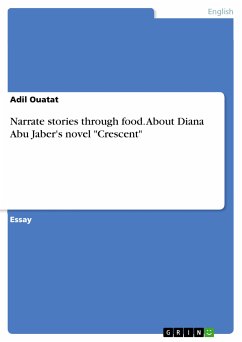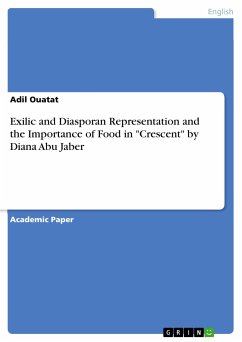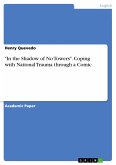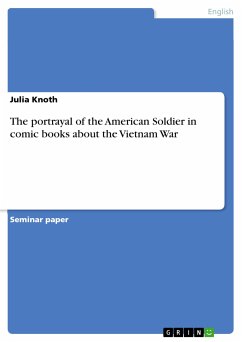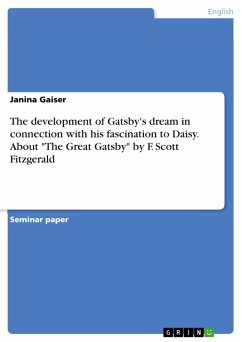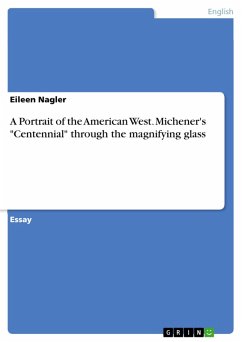Essay from the year 2018 in the subject American Studies - Literature, Sultan Moulay Sliman University (Faculty of arts), language: English, abstract: Diana Abu Jaber in her novel Crescent uses food as a complex language to communicate love, memory and exile. Food also is a metaphor by which Abu Jaber questions the symbolic boundaries embodied in culture, closes, and ethnicity. Food is a real conservatory of the homeland memories and gives up the possibility to imagine mingled identities and traditions. In the novel, the food stands to use a metaphor that deals with the presence and absence of cultural and familial bands. Furthermore, food builds the act of narration through the actions which come to pass in kitchens; those actions mark the pain of exile and loss as well as the hope of family and community. To put it differently, the kitchen becomes "first things taste" which refers to be a cupboard or a "shrine" (Shihab, 1995). So, Abu Jaber uses food to build space in which the possibilities of peace, love and community that are imagined. Lisa Suhair Majaj in Arab American literature and politics of memory suggests that Nye's poetry "explores the markers of cross cultural complexity" (Majaj, 1996). From this point, Dina Abu Jaber's novel tends to discuss the act of cooking and food. The character Aziz who is a poet quotes "let the beauty we love be what we do, there are hundreds of ways to kneel and kiss the ground" (Jaber, 2004). Carolyn Korsmeyer states that "eating together is a common signal among most peoples for friendship, tierce or celebration" she adds, "Both eating and narrative are cultural practices. When food is treated in fiction therefore, it brings to light the way eating may achieve significance within the tradition the narrative in question addresses or in which it participates" she adds that "the intimacy of eating trust presumed the social equality of those who sit down together, and the shared tastes and pleasures of the table". (Korsmeyer, 1999) In this vein, food can be analyzed in non-verbal dimension as well as be listed as cultural experience that cannot be readily translated
Dieser Download kann aus rechtlichen Gründen nur mit Rechnungsadresse in A, B, BG, CY, CZ, D, DK, EW, E, FIN, F, GR, HR, H, IRL, I, LT, L, LR, M, NL, PL, P, R, S, SLO, SK ausgeliefert werden.

